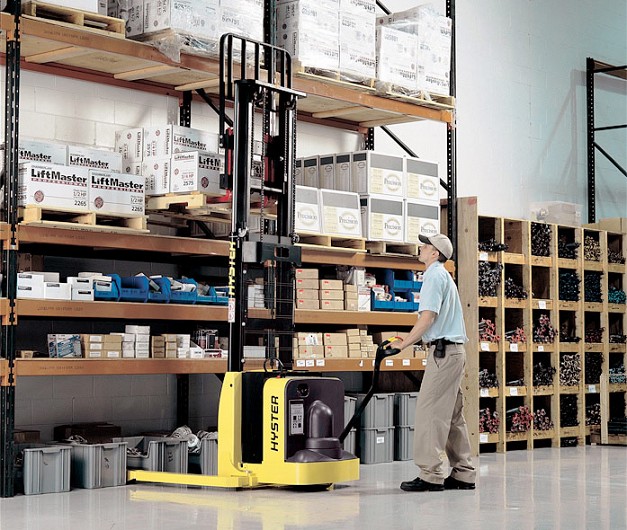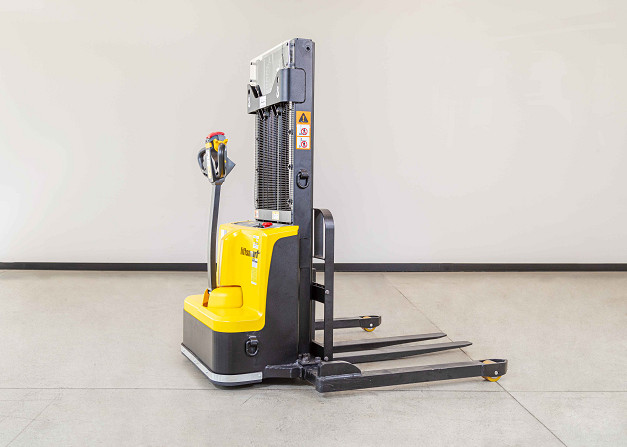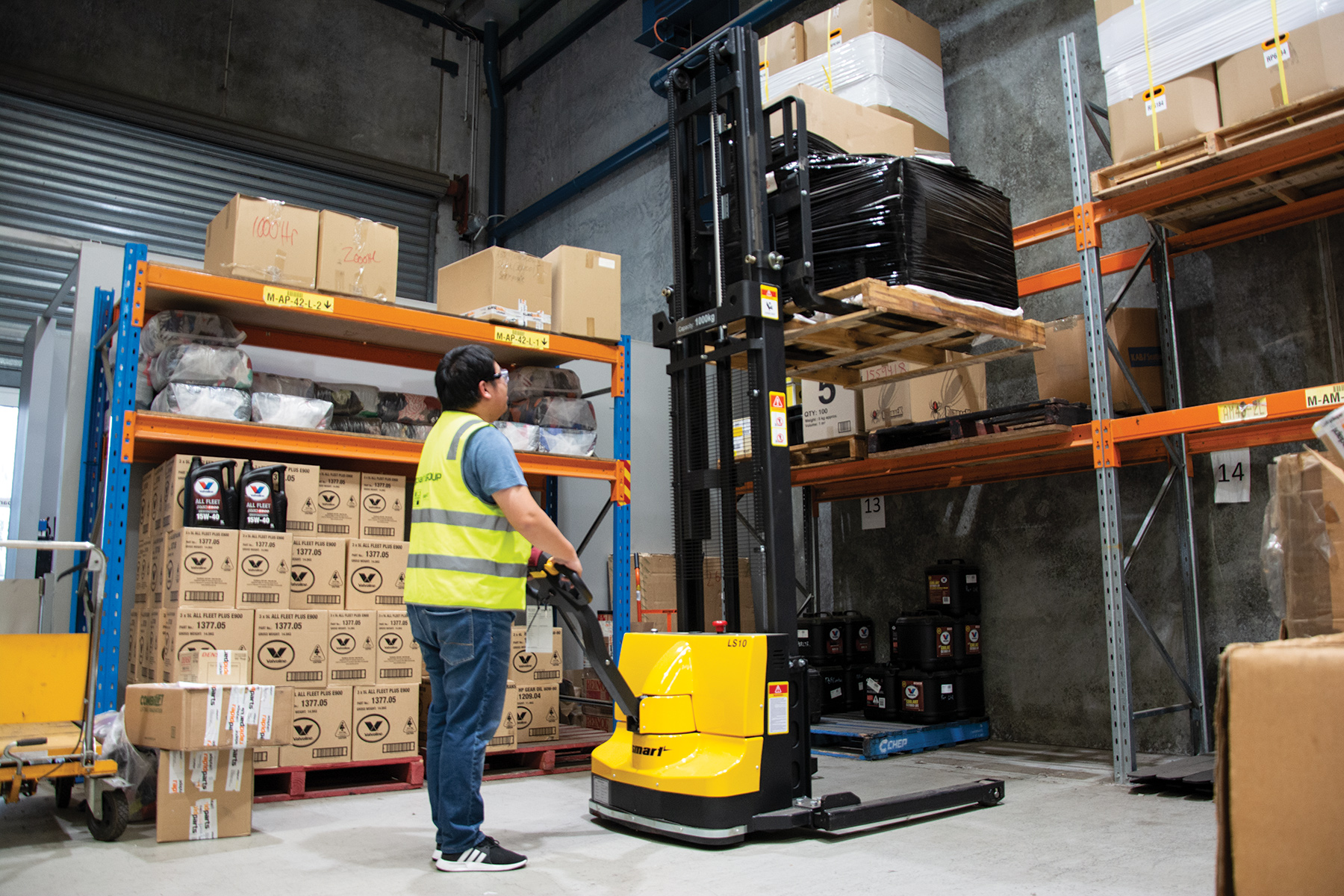Walkie Stacker Training
What is a Walkie Stacker?
Walkie Stackers are a type of pedestrian-operated lift truck. They are designed for lifting, stacking, and transporting pallets or materials in warehouses, retail stores, and other confined spaces.
Unlike forklifts, the operator walks behind or beside the machine, controlling it via a tiller arm. Walkie Stackers use an electric motor which drives both movement and hydraulic lifting. Forks slide under pallets in the same way as a pallet jack, but the mast allows for vertical stacking. They can reach shelving several metres high. Their compact design and precise controls make them ideal for tight aisles where larger forklifts cannot fit.
Options
All courses and costs are tailored specifically to the needs of the workplace and/or individual. Options include,
- Practical assessment only.
- Theory assessment only. Or,
- Full theory, training and practical assessment.
On completion, participants have the knowledge and ability to use Walkie Stackers safely and in compliance with AS 2359.2. Employers can also receive a VOC or “verification of competency” for trainees. This course is not part of a nationally recognised qualification.
Content
- Checks – Perform routine inspections of equipment before use.
- Planning – Learn to organize tasks and workflow effectively.
- Handling – Demonstrate safe lifting, manoeuvring, and placing of loads.
- Shutdown – Follow correct methods to power down equipment.
- Security – Secure the vehicle and workspace post-operation.
- Maintenance – Understand battery charging and maintenance protocols.
Assessments
- Written – To test theoretical knowledge.
- Practical – Driving test for “hands-on” proficiency.
Requirements
- Entry: Basic English literacy and numeracy.
- Duration: Variable. Approximately 4 hours.
- Group Size: Max 5-6 trainees per session (Half day). One-on-one training available upon request.
Fee:
Half day rate $600.00 – 1 to 6 people
Full day rate $1200.00 – 7 plus people (Total over 2 sessions)
Certification
Participants receive a certificate verifying proficiency with the equipment they trained on. While not requiring a national high-risk work license, employers should still keep formal records of training and VOC.





